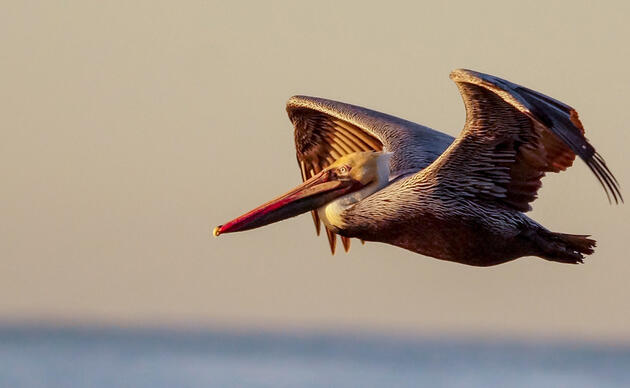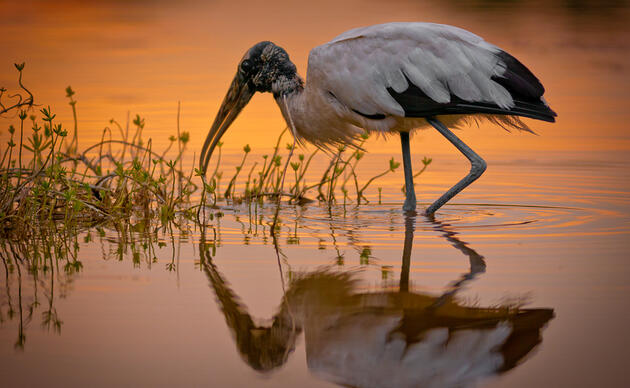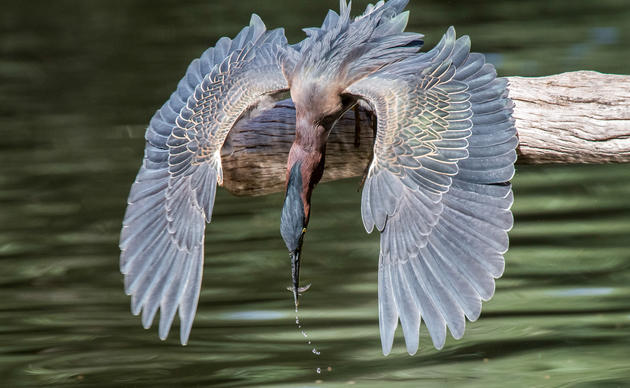COLUMBIA, S.C. (May 11, 2018) – The South Carolina General Assembly yesterday approved a measure encouraging the planting of native vegetation in and around commercial solar developments to the benefit of the state’s birds, bees and other wildlife. This legislation creates a voluntary incentive for developers to choose indigenous plants over turf or gravel by establishing standards that, if followed, allow companies to market their solar facilities as “pollinator and bird friendly.”
“The Solar Habitat Act is a no-cost, win-win opportunity to protect birds and other wildlife in South Carolina, while providing great benefits to surrounding communities,” said Audubon South Carolina Executive Director Sharon Richardson. “Native plants lower costs for solar developers, increase the potential crop yields of nearby farms and significantly reduce storm water runoff from solar sites by improving the health of the soil. I’d like to give special thanks to Representatives Russell Ott and Gary Clary, who sponsored the bill in the House of Representatives, as well as Senators Danny Verdin and Kent Williams who championed the bill in the Senate.”
As opposed to turf grass or gravel, native plants provide valuable benefits and reduce costs for the entire community. Of particular interest to Audubon South Carolina’s more than 20,000 members is the habitat, forage and migratory waystations that native plants provide for the state’s 400 bird species, including some of our state’s most cherished game birds and song birds.
Native plants attract wild pollinators such as bees, bats and butterflies, which help increase the productive yield on surrounding croplands, particularly fruit and vegetable crops. In the face of hive collapse, attracting pollinators is of particular importance to the health and future of South Carolina’s agricultural sector.
Native plants are also more resilient, less labor- and water-intensive, and less costly than turf grass, which requires constant maintenance. The deep roots of native plants help support healthy soils and filter storm water, which prevents damaging runoff and surface erosion during intense downpours.
According to the Solar Energy Industries Association, the solar industry employs nearly 3,000 people at 69 companies and accounts for more than $766 million in investment across South Carolina. As the state’s solar industry continues to grow, this bill will help set commercial solar development on a bird and pollinator-friendly path. Audubon South Carolina will work closely with the South Carolina Department of Natural resources as well as other state agencies and non-profit organizations to develop a native plant and pollinator management plan to be used as technical guidance by the solar industry in accordance with the Solar Habitat Act.
To learn more about native plants in your area, and to find out how to go about planting your own, visit Audubon South Carolina’s Plants for Birds, a one-of-a-kind public online database, available at audubon.org/native-plants.
About Audubon South Carolina
Audubon South Carolina is a conservation and advocacy organization that works statewide with its eight Audubon South Carolina protects birds and the places they need, right here in South Carolina, using science, advocacy, education and on-the-ground conservation. We’re the state office of the
National Audubon Society, which has more than one million members and a century-long track record of success. In South Carolina, we represent nearly 20,00 Audubon members, nine Audubon chapters and bird club partners across the state, two Audubon centers and 22,000 acres of land that we own and manage. Learn more about what we do and how to help at sc.audubon.org and follow us on Facebook and Twitter at @AudubonSc and Instagram at @audubon_sc.
Media Contact
Angelina Ricci Eisenhauer
Director of Policy and Communications
Audubon South Carolina aeisenhauer@audubon.org
202.257.4733



